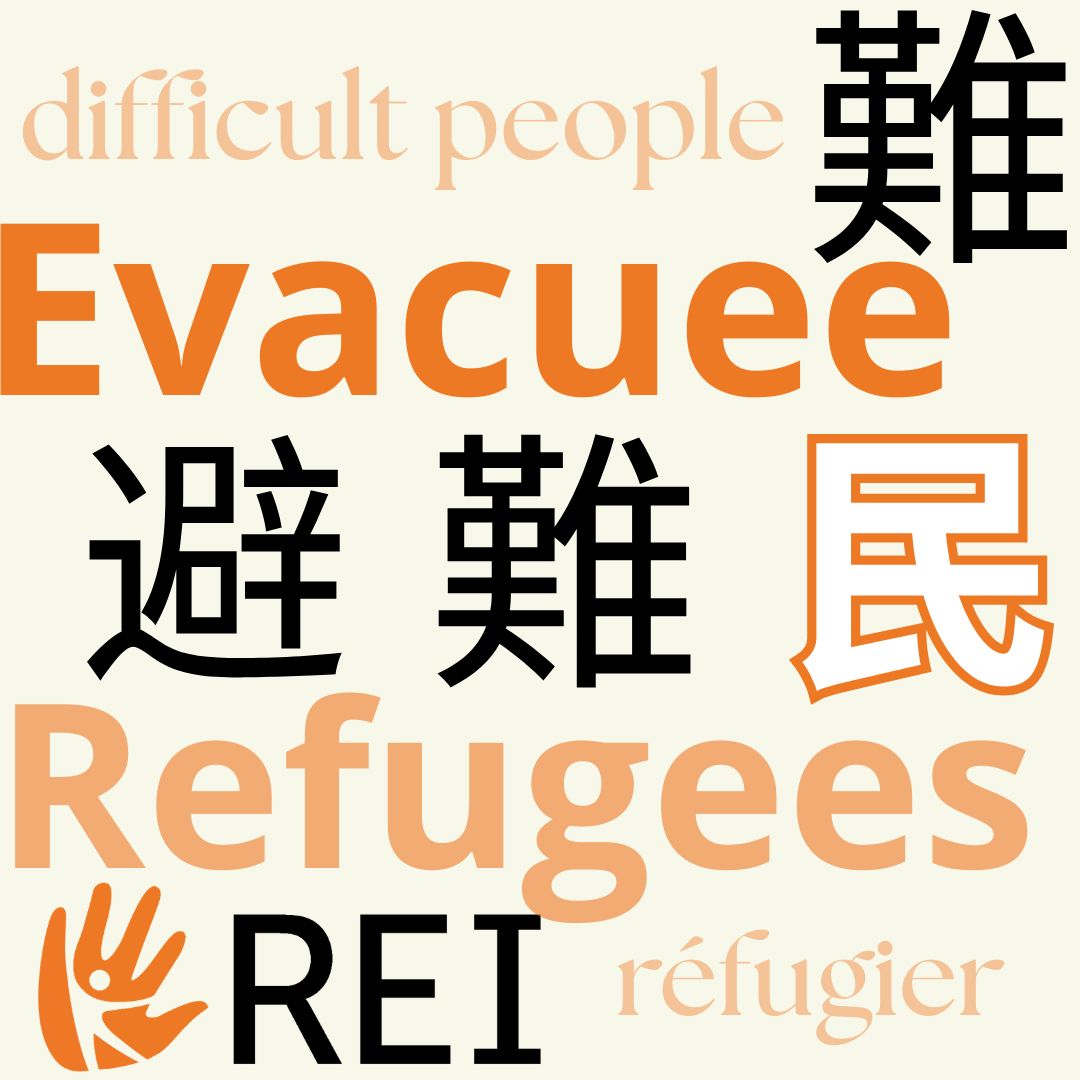Etymology of the word ‘refugee’

June 5, 2025
The word “refugee” came from the French “réfugier,” meaning “to take shelter, protect.” It is also the past participle of the word. So, if it were translated literally into English, it would be something along the lines of “the sheltered” or “the protected.” Already, the very etymology of the word “refugee” suggests that their status is passive and subordinate. “Refugee” is an English loanword from French. It is also worth investigating the Japanese translation of “refugee”—“難民”—and considering its different connotations and insinuations. At REI, we have paid close attention to the linguistic contexts in which these words are applicable and have opted to use the word “避難民” to refer to “refugees.” In this blog, I will explain the nuances between these translations and invite you to reconsider the definition of refugees in the new era of humanitarian support.
In Japanese, “難民” literally means “difficult people.” The idea of being “difficult” is twofold: on the one hand, it means the external situations in which refugees find themselves are difficult; on the other, it implies that refugees are inherently difficult. This double meaning conflates refugees with their conditions: refugees are equated with the wars and conflicts (among other reasons) that forced them to flee their homes—a problem or difficulty. English is not innocent in this regard. We are reminded that in popular media portrayals, refugees are often described using vocabulary such as “crisis,” “emergency,” and “security threat,” etc. The Japanese “難民” merely makes explicit a transcultural, condescending attitude that continuously problematizes and disempowers refugees.
Alternatively, what word should we use? What word can convey the difficulties refugees face without undermining their dignity? At REI, we use “避難民,” which literally translates to “people who evacuate from difficulties” or “evacuees.” This word is chosen because it avoids the double meaning of “難民”; it suggests clearly that refugees are trying to escape disasters and conflicts and that they are not inherently “difficult” themselves. Moreover, “避難民” is more culturally relatable. For a Japanese audience, attending evacuation drills in preparation for potential natural disasters is a familiar experience. The “避難” in “避難民” attempts to evoke precisely the experiences of evacuation that we believe can become the foundation of empathy between our Japanese audience and the refugees we support.
Finally, stepping back to reflect on this discussion about translation, REI’s use of new vocabulary like ‘避難民’ is an effort to see the world from refugees’ perspectives.” While “難民” may be from a government’s point of view that regards refugees as a problematic population that brings troubles and challenges, it dehumanises refugees. At REI, our dedication is to the improvement of refugee lives, including their need for dignity. Therefore, we have proposed fairer expressions such as “避難民” to reflect this ideological reflection.